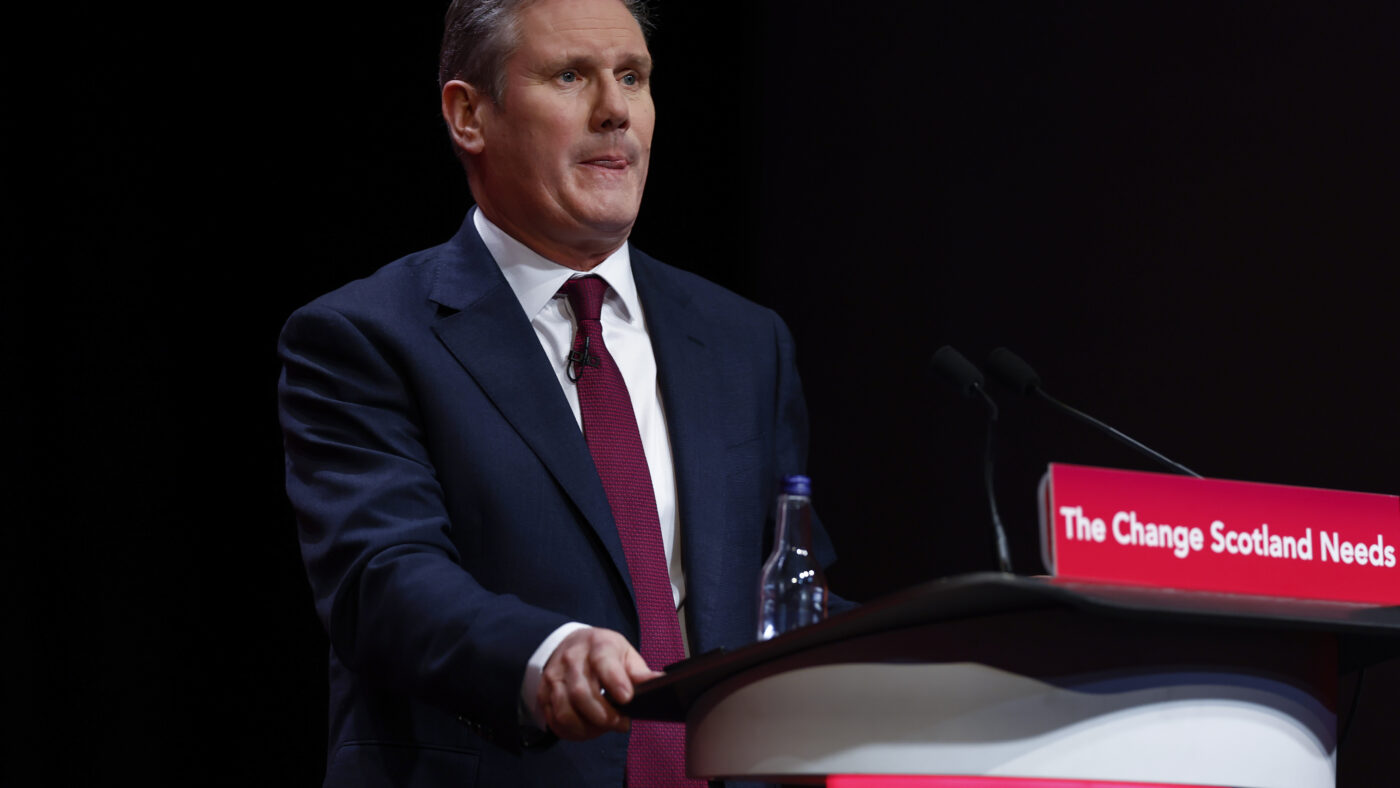One of the principal villains in Liz Truss’s new memoir-cum-manifesto, Ten Years To Save The West, is the ‘deep state’. This idea of a network of unaccountable and often secret institutions controlling government was popularised by Donald Trump (although its origins are Turkish) and Truss has enthusiastically embraced the notion. The ‘deep state’ trope, she hopes, will sell her narrative, and therefore her book, to American conservatives, as well as absolving her of responsibility for her catastrophic 49-day premiership.
The hitch is that there is no ‘deep state’ in Britain. When Truss spoke at the Conservative Political Action Conference in Maryland in February, she named some of her supposed adversaries, from the Bank of England and the Office for Budget Responsibility to the Judicial Appointments Commission and the Environment Agency. What she did not tell her audience was that the Prime Minister is legally and formally constrained by almost none of these, and enjoys huge institutional power.
It is tempting but too easy to write off the former premier’s excuses as a supercharged, self-pitying sales pitch. There may not be a ‘deep state’, but there is a trend on the progressive wing of politics to disenfranchise politicians and give oversight or real-time control of policy to ‘non-political’ groups, and it is one which the Labour Party is relying on heavily as it seeks to construct a manifesto without having to make spending commitments.
Sir Keir Starmer knows that any hint of financial imprudence could damage Labour’s prospects, even as it contemplates a potentially historical landslide election victory. Consequently, he and his Shadow Chancellor, Rachel Reeves, have strapped themselves into a self-tailored straitjacket: they have pledged to create a ‘fiscal lock’ by giving the OBR statutory powers to publish forecasts, for which they would have full access to government statistics. Essentially meaning that no chancellor should be able to defy the received wisdom of the OBR.
Another public body, the Office for Value for Money, would be created to monitor public spending before it was enacted. Reeves has promised it will be ‘equipped with meaningful powers’. So spending decisions will be subjected to the scrutiny of a non-governmental body even as they are proposed, let alone carried out.
This is part of a process of outsourcing decisions. Great British Energy will be a publicly owned but operationally independent body which will not only be an energy generator but will make decisions on public investment in the energy sector, especially in potentially risky new technologies. Let’s be clear about this: GB Energy, not ministers, will make decisions on spending taxpayers’ money on the future of energy generation.
Some of the funding for Great British Energy will come from a National Wealth Fund, in which Labour will invest £7.3bn; the fund will then use its resources to create jobs in a zero-carbon economy. Reeves declared recently, ‘A Labour government can only deliver changes to our economy by working alongside business,’ but in fact, she and Starmer are ceding the field to business. She has already appointed a task force to advise her on the operation of the National Wealth Fund, chaired by Dr Rhian-Mari Thomas, head of the Green Finance Institute, and including former Bank of England Governor Mark Carney and CEO of Barclays C.S. Venkatakrishnan.
The direction of travel is striking. Serious decisions with long-term consequences cannot be taken by politicians, by ministers of an elected government, but must be delegated to experts. That delegation will be by statute if necessary, to foil any politico who was minded to meddle in matters which do not concern him or her. It is an extraordinary programme to divest the executive of power, and shrug off any sense of responsibility and accountability.
One of the Leave campaign’s most potent slogans in the 2016 Brexit referendum was ‘Take back control’. One can argue over what it meant, or should mean, but it surely did not mean this. Starmer and his colleagues may be reacting to an historic low level of trust in politicians and the political establishment, but their remedy is disastrous. They seem to have read the lurid warnings in Truss’s book and seized on them as a programme for government.
Except that they seem to want to do very little ‘governing’ at all. Tax and spend? Leave it to the watchdogs. Reshaping the economy? A job for bankers spending billions of pounds of taxpayers’ money. The future of energy? Give it to an operationally independent body with no ministerial interference. That would start to look like a ‘deep state’. It makes you wonder why Labour wants to be elected at all.
Click here to subscribe to our daily briefing – the best pieces from CapX and across the web.
CapX depends on the generosity of its readers. If you value what we do, please consider making a donation.


